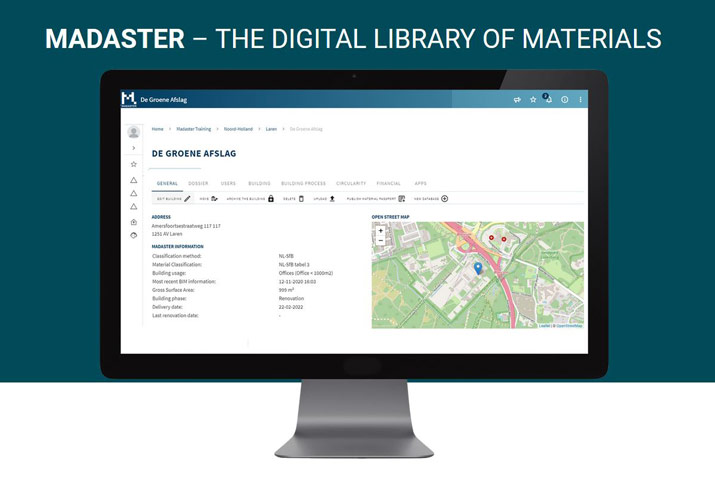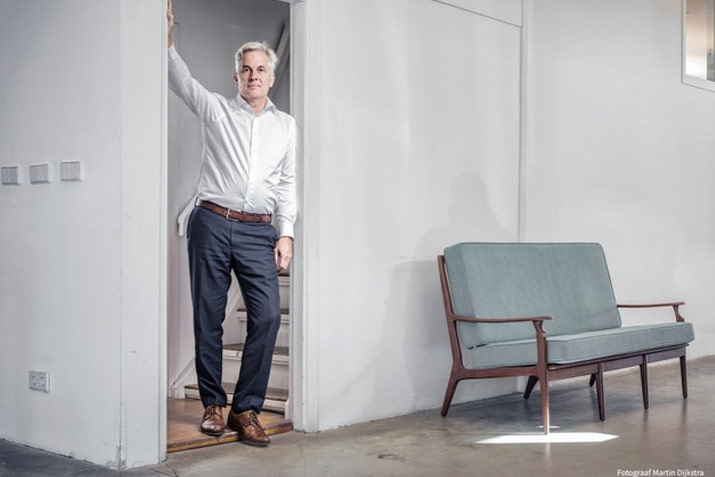

The construction sectors future is bound to the circular economy
According to Thomas Rau, co-founder of Dutch-based Madaster, we live in a time where real innovations take place outside economic sectors and the concept of construction in itself is a thing of the past.
Madaster is an online registry based in the Netherlands where materials and products used in the construction of buildings are registered.
The objective in cataloguing all building materials and elements used in the construction process is to make their reuse easier in alignment with circular economy principles.
It encourages smart design and eliminates waste, and in many respects shares similar platforms and values as prefabrication.
In effect, each building becomes a repository of materials, and when the building has reached then end of its lifecycle – it becomes part of the circular economy.
It’s gained considerable support since its inception in 2017, and approximately 10 million square metres of building have been saved on Madaster; that equates to approximately several thousand buildings.
Thomas Rau, founder of Madaster, is now expanding the model internationally: by the end of this year it’s anticipated there will be databases established to service Norway, Switzerland and Belgium.

An imminent launch in Germany is scheduled where, Patrick Bergmann, Managing Director, who previously worked in property valuation at the management consulting firm Pricewaterhouse Coopers (PwC), wants to integrate at least 10,000 buildings on the platform within three years: “The database must be wide. Only then can reliable statements be made not only for individual objects, but also for types of buildings.
The implications for investors and property developers are significant as Sarah Krüger, Sustainability Manager at Commerz Real (German-based real estate asset and management company), said: “The issue of the circular economy is becoming more and more important for us. Large investors are increasingly asking themselves what is the ecological footprint of their portfolio.”
It’s anticipated that EU sustainability regulations may soon focus more on material consumption and climate-damaging emissions over the entire real estate lifecycle.
In particular, the German Building Energy Act (GEG) will place less emphasis on energy consumed by a building but significantly more on its overall CO₂ balance, including the production and recycling of building materials and products.
It’s a platform that blends well with prefabrication and the rise of BIM (building information modelling) and emerging use of digital twins in construction.
See: madaster.com
CLICK HERE to return to the home page for more articles.